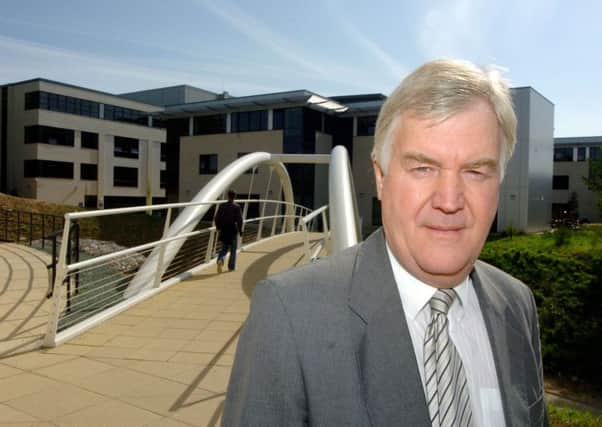Oil price collapse to spur consumer spending, says Item Club


THE COLLAPSE in the price of oil will provide a “shot in the arm” for UK consumers and boost the flagging economic recovery, a new report from an influential think tank claims today.
The EY Item Club has revised its forecast of GDP growth up from 2.4 per cent to 2.9 per cent this year, compared with a likely rate of 2.6 per cent for 2014.
Advertisement
Hide AdAdvertisement
Hide AdLower oil prices mean that inflation will average around zero in 2015 and turn negative in the early months of the year, helping to stay the Bank of England’s hand on interest rates until the first quarter of 2016, said its latest forecast.
Meanwhile, the UK’s key trading markets in America and Europe stand to benefit from lower commodity and energy prices, helping to offset the effects of weak global demand on UK exports, it added.
The York University academic Peter Spencer, who is chief economic advisor to the Item Club, said: “Not every economy will be a winner from oil prices collapsing, but the UK certainly is.
“We have described the previous weakness of commodity prices as a silver lining in the storm clouds gathering over the world economy.
Advertisement
Hide AdAdvertisement
Hide Ad“But with oil prices now down over 50 per cent since last June, this silver lining has turned to gold.
“While it is not a game changer in terms of growth prospects, falling oil prices come just as the recovery was losing momentum and will move the game up to a higher level for a year or two.”
Much now depends upon how low energy prices go and for how long.
This could be a flash in the pan like 2009, when prices fell briefly to $40 a barrel, but the Item Club believes that this fall will last longer.
Advertisement
Hide AdAdvertisement
Hide AdThe Saudis have regained control of the market and will want to remind investors in alternatives that oil prices can go down as well as up – and stay down for a worryingly long time, added the report.
However, it is not expecting another era of cheap energy like the late 1980s and 1990s and assumes that Brent will be back at $75 a barrel by 2018.
Mark Gregory, chief economist at accountancy firm EY, said original business forecasts for 2015 might now be too conservative, at least for consumer facing companies, given the rapid change in outlook.
He added: “Businesses now need to dust off these plans and adjust them to reflect the new reality of falling oil prices and growing consumer spending.
Advertisement
Hide AdAdvertisement
Hide Ad“At the same time, risks remain and should not be neglected. Possible shocks from developments in the Eurozone, the UK general election and business specific risks such as changes in China - if this is a major destination for sales - must be taken into account when testing these plans.”
The Item Club is forecasting that increases in consumer spending will drive growth in 2015.
Low inflation combined with cheaper commodity prices, as a result of falling food, fuel and energy costs, will give consumers a real “shot in the arm”, it said.
The Item Club is expecting income from wages and salaries to increase by 3.5 per cent in 2015 and real disposable incomes by 3.7 per cent.
Advertisement
Hide AdAdvertisement
Hide AdThe forecast sees real household consumption increasing by 2.9 per cent this year and 2.6 per cent in 2016.
Mr Spencer, who is professor of economics at York University, said: “The UK consumer has been lashed by rising fuel and food prices for so long, but is now the major beneficiary as these pull back.
“So far, the recovery in our incomes has been driven by larger numbers entering work while earnings have been falling. But now individuals can look forward to a substantial increase in real earnings.”
He warned that it wasn’t all good news: the global economy has slowed and questions remain over the Eurozone.